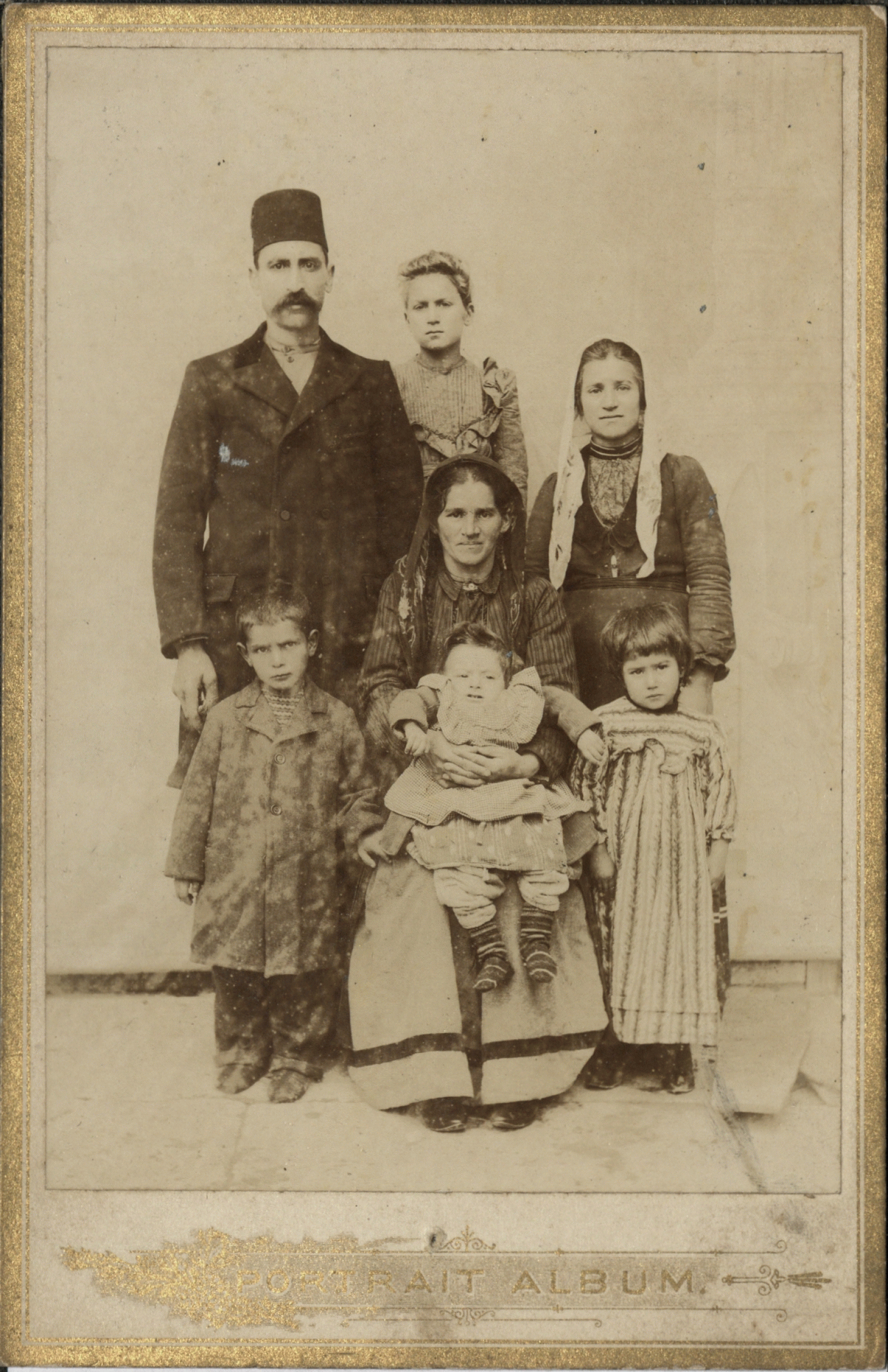Matinée
Zeynep Devrim Gürsel: Portraits of Unbelonging: Photography, the Ottoman State, and the Making of Armenian Emigrants

Photograph of Dikran Asarian from Sivas and six members of his family, all bound for America, May 21, 1906
Courtesy of Başbakanlık Osmanlı Arşivleri (Prime Ministry Archives, Istanbul)
Portraits of Unbelonging is the first in-depth exploration of the official role of photography in the history of Armenian emigration to the United States, one of the first examples of photography being used to police borders. It investigates Armenian families who emigrated from the Ottoman empire through a collection of one hundred photographs taken between 1905 and 1908. Armenian Ottoman subjects received their passports on the explicit condition that they renounce their nationality and never return to the empire. Assumed to posit a potential future threat to the empire, the photographs of emigrant families were anticipatory arrest warrants intended to facilitate identification in the event of an undesired and dangerous future return. Portraits of Unbelonging is a double-sided history of migration. Like each individual photograph, the project faces two directions: the Ottoman past and an American future. It is a history of mass migration on an intimate scale.
Prof. Gürsel gave a first talk on this topic last year at the KHI at the conference "Encounters". She is returning to the very first audience to whom she presented this project with her recent findings in the hopes of having a generative conversation about this work in progress.
Zeynep Devrim Gürsel is a media anthropologist and Associate Professor in the department of Anthropology at Rutgers University. Her scholarship involves both the analysis and production of images. She is the author of Image Brokers: Visualizing World News in the Age of Digital Circulation (University of California Press, 2016), an ethnography of the international photojournalism industry during its digitalization at the beginning of the 21st century, based on fieldwork conducted in the United States, France and Turkey. She is also the director of Coffee Futures, an award-winning ethnographic film that explores contemporary Turkish politics through the prism of the everyday practice of coffee fortune telling (www.coffeefuturesfilm.com). Currently she is researching photography as a tool of governmentality in the late Ottoman period. Specifically, she is investigating photography during the reign of Sultan Abdülhamit (1876–1909) from medical imagery to prison portraiture to understand emerging forms of the state and the changing contours of Ottoman subjecthood. During 2018–2019 she is a NOMIS Fellow at eikones Center for the Theory and History of the Image in Basel, Switzerland. While there she will be working on Portraits of Unbelonging, the first in-depth exploration of the official role of photography in the history of Armenian emigration to the United States.
04 ottobre 2018, ore 11:00
Kunsthistorisches Institut in Florenz - Max-Planck-Institut
Palazzo Grifoni Budini Gattai
Via dei Servi 51
50122 Firenze
Avviso
Questo evento viene documentato fotograficamente e/o attraverso riprese video. Qualora non dovesse essere d’accordo con l’utilizzo di immagini in cui potrebbe essere riconoscibile, da parte del Kunsthistorisches Institut in Florenz a scopo di documentazione degli eventi e di pubbliche relazioni (p.e. social media) la preghiamo gentilmente di comunicarcelo.


